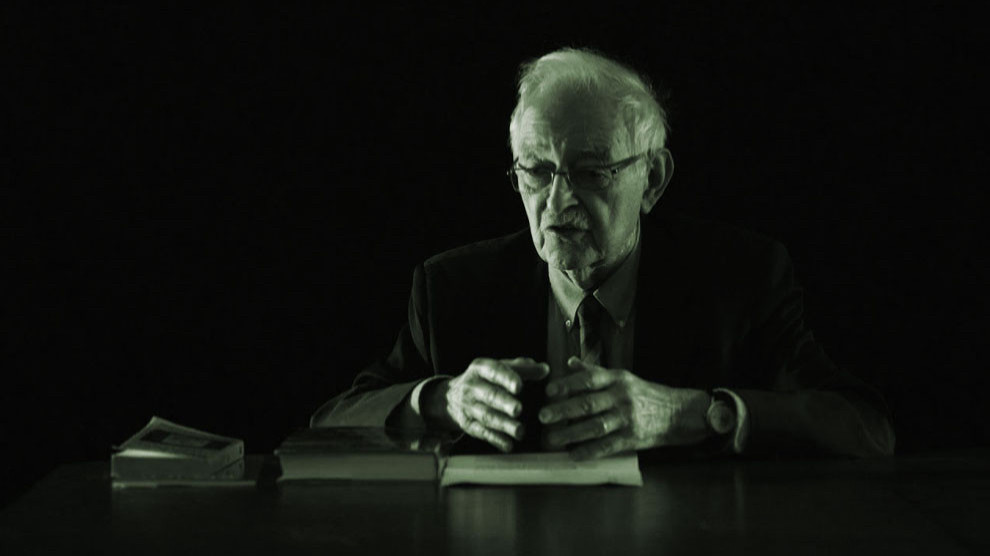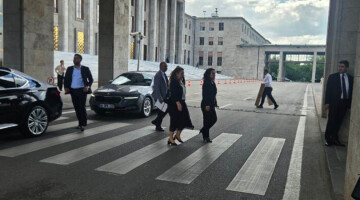International Initiative “Freedom for Abdullah Öcalan–Peace in Kurdistan” released a statement paying tribute to Immanuel Wallerstein who passed away on August 31.
The statement reads as follows;
“Our collective hearts are heavy with sympathy upon learning of the death of Immanuel Wallerstein. His loss is a profound loss for us all. What set Wallerstein apart from other sociologists was that he had a much stronger analysis of how to break from the world-system.
In this sense, both Fernand Braudel in his analysis of the world history through different terms and especially the longue durée and Wallerstein through his world-system analysis have immensely contributed to Abdullah Öcalan and the Kurdish freedom movement in better analyzing the defeat of actually existing socialism. But not only this, their contribution can be better observed in Öcalan’s choice of unit of analysis for the historical-society: moral and political society.
For several decades Immanuel Wallerstein stood firmly on the side of the oppressed people around the world. He was widely read in Kurdistan, and many of the concepts he developed over time have proved very influential on the thinking of freedom-loving people in the Middle East. Most notably, Abdullah Öcalan read numerous books by Immanuel Wallerstein and mentions him as a primary influence. After having read volume I and II of Wallerstein’s magnum opus, The Modern World-System, he frequently asked his lawyers when volume III would finally be published in Turkish (it eventually came out in 2011). He even asked them to inquire into the possibilities of speeding up the publication process.
Wallerstein’s recurring emphasis on the possibility and importance of political intervention especially in the current period of chaos (Utopistics) is a recurring motive in Öcalan’s prison writings. Wallerstein’s criticism of the current state of the social sciences (Unthinking Social Science) and the suggestions of the Gulbenkian commission (Open the Social Sciences) he chaired find their echo in Öcalan’s search for a new paradigm and his suggestion for an academy system.
Öcalan praises Wallerstein in his prison writings for being able to distance himself greatly from rigid determinism. An example is the message he sent to the 2012 Challenging Capitalist Modernity conference in Hamburg, Germany, where he stated that “... an exhilarating moment in which every nano-input by every individual or group matters and can affect the ultimate outcome of our struggle to replace this system with a much more humane system”.
Wallerstein not only possessed the most competent power to evaluate the method and knowledge systems that led to the ‘official modernity’, he also stood with those who were vulnerable and who waged a struggle. One found him supporting the release of critically ill prisoners in Turkey in 2014, demanding freedom for Abdullah Öcalan and all the political prisoners in Turkey, or as he evaluated the solution to the Kurdish question in his preface to the Road Map for Negotiations by Abdullah Öcalan.
“Wallerstein does not at all believe in a solution within the system,” said Öcalan “he is very radical about it. He keeps on reiterating—tirelessly—that the crisis we are going through is systemic and structural and proposes, and rightly so, that we all embrace the intellectual, moral and political tasks. (...) Many lessons can be deduced from his analysis as he tells us how much intellectual capital is dependent on capitalist modernity and that a radical break is necessary.” Wallerstein, ended his message to our conference by saying (and not excluding himself) “once we have made our moral choice, we must devise the political strategy that will most help us to prevail. I myself believe this has to involve a very wide coalition of forces of the entire world Left.”
The struggle for freedom of the Kurdish people and women is spreading extensively in order to build a democratic, women’s freedom and ecological society: the system of democratic civilization to be their choice as a way out of this chaos. Immanuel Wallerstein will best be honored in our success in three intertwined tasks – as he put it, “I wish us well on all three intertwined tasks: analytic probity, moral choice, and effective political strategy.”
The world knew him as a great thinker. At home though, he was gentle to his guests, caring and modest. We lost a true sage of the 21st century.”














